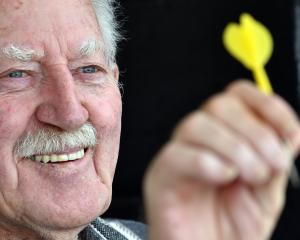
A proposal to make All Black tests and other national sporting events free-to-air is set to fail.
A bill in the name of New Zealand First MP Clayton Mitchell, which is expected to come before Parliament tonight, would ensure that any game of "national significance" was freely available to all New Zealanders.
But Mitchell said he had failed to gain enough support to get it over the first hurdle.
Mitchell singled out Labour for not agreeing to back it, saying the party was "forsaking working Kiwis and seniors" who could not afford pay TV.
Supporting New Zealand teams and other taxpayer-supported events could involve costs of $1000 a year per household, he said.
Labour's broadcasting spokeswoman, Clare Curran, said her party was aware of the public's increasingly dissatisfaction with their access to live sport.
But she said Mitchell's bill was "unworkable and impractical" because it required too many sporting events to be broadcast for free. Labour's priority was improving public broadcasting, she said.
The bill would have covered all international rugby, rugby league, netball, cricket, and football games either played in New Zealand or in a major event such as a world cup, the Summer and Winter Olympics and the Commonwealth Games, and National Rugby League (NRL) grand finals or Super 15 rugby finals featuring a New Zealand team.
Another Opposition bill was also expected to be voted down today.
Green MP Gareth Hughes' private members' bill would have allowed people with student loans to put off their repayments and divert them into a deposit for a first home.
Hughes said many young people were struggling to get a house deposit together and his bill would make it easier and faster to get their first home.
If combined with KiwiSaver, a bachelor's graduate on a median wage could save $18,000 over five years by diverting their repayments, he said.
Hughes said he did not expect the bill to pass, based on the responses from other parties. When it was pulled from the ballot, the Government said it would oppose it because graduates were in a better position to buy a house than most people.
Two other bills are set to be debated.
Green co-leader James Shaw's bill would require governments to take into account environmental responsibility in any macro-economic planning,
National MP Scott Simpson's bill would allow employees with an annual gross salary over $150,000 to contract out of the personal grievance provisions.












